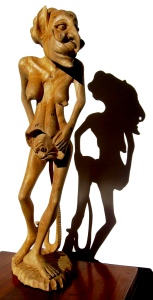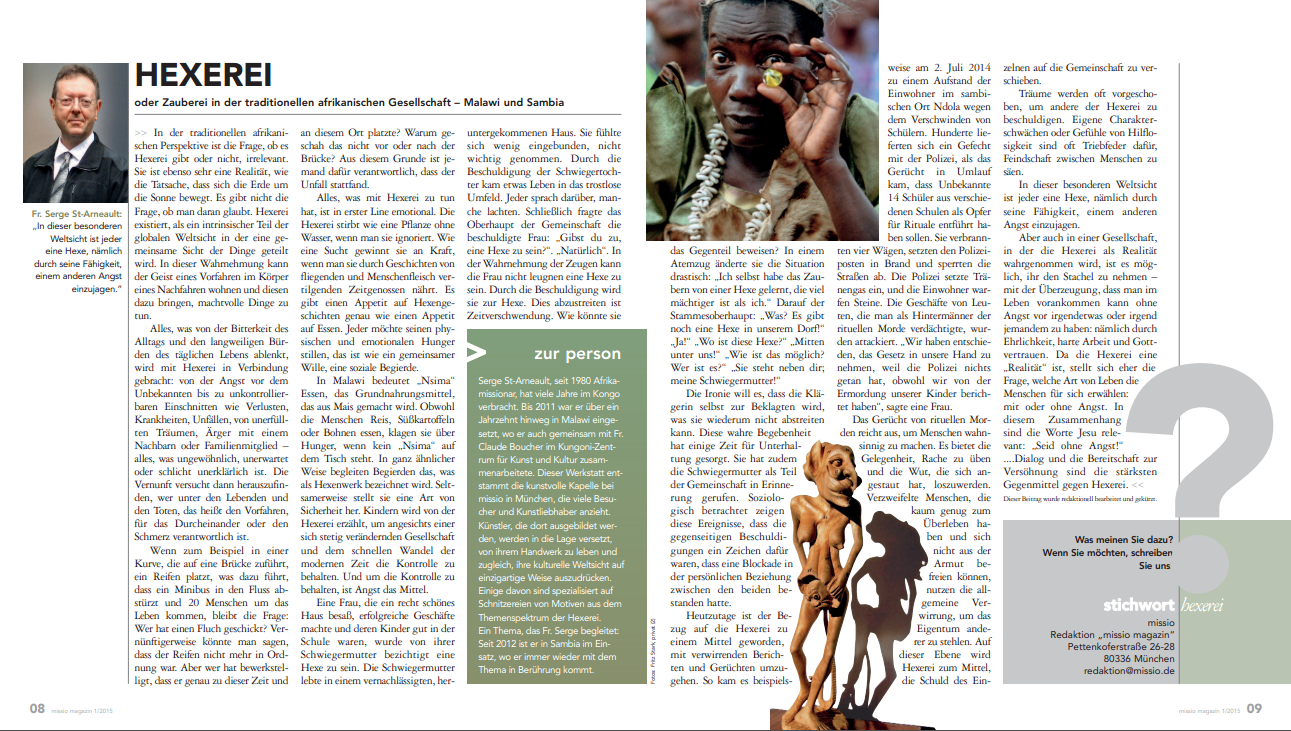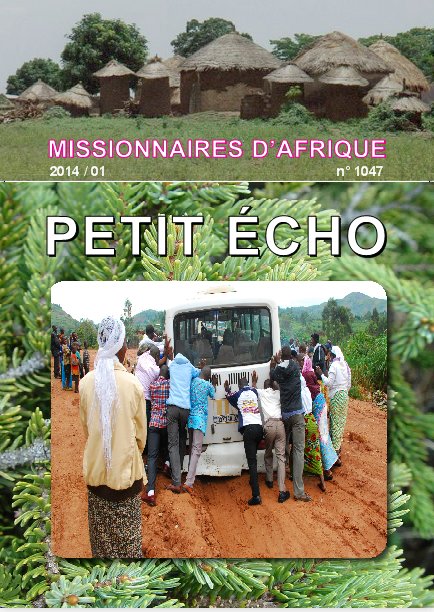 By Serge St-Arneault, M.Afr
By Serge St-Arneault, M.Afr
Witchcraft and sorcery are words impossible to define satisfactorily. Hundreds of books, thousands of articles, endless reports in newspapers make it challenging to streamline the topic.
In the traditional African perspective, the question of whether or not witchcraft exists is irrelevant. It is a ‘reality’ as much as the earth is moving around the sun. There is no need to believe in it. It is ‘there’ as an intrinsic part of a global worldview whereby a common vision is shared. In this vision, an ancestral spirit can reside in the body of a descendent and through the descendent perform powerful deeds.
Moreover, anything distracting from the bitterness and to the boring burden of daily life, from the anxiety of the unknown to uncontrolled changes, from deprivation to sickness or accident, from unfulfilled dreams to anger or resentment towards a neighbour or a family member, anything which is unusual, uncommon or simply inexplicable, all this is associated to witchcraft. The rationale is to know WHO among the living and the dead, meaning the ancestors, is responsible for the disorder or the pain inflicted. For instance, if a tyre bursts in a curve leading to a bridge provoking the accident of a mini-bus plummeting into the river and leading to the death of 20 people, the question remains; WHO sent a curse? Rationally, one can guess that the tyre was run out. Still, WHO made it burst at that specific place and time? Why not before or after the bridge? Therefore, someone is responsible for the accident to occur right ‘there’.
Anything related to witchcraft is primarily emotional. Witchcraft dies out like a plant without water if ignored. On the contrary, like an addiction, witchcraft rises or increases by itself when it starts nourishing lives through endless stories of flying planes baskets and flesh eaters. Actually, there is an appetite for witchcraft stories as much as of real food. There is an overall search, a social desire, a common will to eat endlessly in order to ease physical and emotional hungers.
In Malawi, food means ‘nsima’, which is the staple food made out of maize. Even though people are eating rice, sweet potatoes or beans, they will complain of hunger is there is no ‘nsima’ on the table. Similarly, desires are concomitant to witchcraft. Strange enough, it brings some kind of safety and safeguards. This is why children are being taught about witchcraft as a way to maintain a grip on the evolution of the society at a time of rapid changes imposed by modernity. Witchcraft is a way to regain or remain in control by using fear as a tool.
A lady who had a pretty nice house was accused of being a witch by her mother-in-law. She was also successful in business. Her children were doing well at school. As for the mother-in-law, she was living in a dilapidated house due to lack of maintenance. She was not able to move around easily, feeling neglected. Suddenly, the accusation brought some kind of life in this dull surrounding. Everyone was commenting with some laughter about this event. Then, the local chief intervened and asked the lady:
 Do you agree to be a witch?
Do you agree to be a witch?- Of course, I do!
In the mind-set of the witnesses, this lady cannot deny to be a witch. She is so by simply being accused of being one. To deny it is a waste of time. How to prove the contrary anyway? Then, she took advantage of this accusation to overrun this critical moment for her benefit.
- I have learned to be a witch from a much stronger witch than me.
- What! You mean that there is another witch in our village, said the chief.
- Yes!
- Where is the witch?
- Right here among us.
- How come? Who?
- She is beside you; my mother-in-law!
Ironically, the accuser became herself a witch, something she could not deny either. This true story brought some entertainment for a little while. It gave also to the mother-in-law a chance to be remembered as being part of the community. Sociologically speaking, this event shows that those mutual accusations were a sign of a rupture or a blocking of personal relationship.
Nowadays, witchcraft has also become a way to take advantage of confusing reports and rumours. For instance, on July 02, 2014, in Zambia, Ndola residents rioted over ‘missing pupils’. Hundreds of citizens fought running battles with the police after word went round that 14 students from different schools were abducted by unknown people to be used in rituals (witchcraft). They burnt to aches four vehicles, set on fire the police posts and blocked the roads. Tear gas was dispersed but the residents were unruly and stoned the police. Then shops belonging to those suspected to be behind the ritual killings were damaged. “We have decided to take the law into our own hands, said a women, because the police have not done anything since we reported them about the killing of our children.”
Ritual murder rumours is enough to make people mad. It turns out to be an opportunity to revenge, to let the steam of anger out of the chess. Desperate people, having it hard to survive or move out from abject poverty, take advantage of this confusion to steal. At this level, witchcraft is being used to push down the personal responsibility of wrong doing by making the guilt collective.
Accusations of sorcery based on dreams are also an important channel to reveal the unconscious as a sort of safety device or as protection against some weakness of character in oneself. Like riots, dreams are being used to bring hostility between people to cover up feelings of helplessness.
In this particular world view, everyone is a witch by using the ability to make others frightened. As everyone fells physically and emotionally hungry, witchcraft can easily be instrumental in fulfilling this hunger at the expense of others.
Nonetheless, despite the burden of cultural mind set whereby witchcraft is a profound ‘reality’, it is still possible to make it obsolete, or at least inoffensive, through the conviction that progress in life can be done without fearing anyone or anything, through honesty, hard work and faith in God. Witchcraft being a ‘reality’, the true question is rather more to choose the type of life people want to share; with or without anxiety. In this regard, the words of Jesus are quite relevant: “Do not be afraid!”… to ease broken relationship and to make dialogue part of reconciliation to counteract witchcraft. “All power has been given to me in heaven and on earth”, said again the Lord Jesus. The Christian who believes in that will never fall a prey to human forces, including sorcery or occult powers, for Christ has conquered them.

Sources:
Abigail Chaponda, Ndola residents riot over ‘missing pupils’, The Post, Zambia, Thursday July 3, 2014, page 4.
Mubanga Nondo, Ndola residents riot, Zambia Daily Mail, Zambia, Vol. 18, No 132, Thursday, July 3, 2014, front page.
Joseph Chakanza, Sorcery: Pastor Unresolved Issue, The Lamp Magazine, Malawi, No. 71, May-June 2008, pages 20-21.
Catholic Information Service for Africa (CISA), Ancestor Religion and the Christian Faith, Pastoral Statement of the Southern African Catholic Bishops’ Conference, Issue No. 742, Monday, August 14, 2006.
Input given by Bishop Patrick Kalilombe at the General meeting of the Missionaries of Africa. Theme: Pastoral care and witchcraft, Bethany House, Lilongwe, Malawi, 17th October 2006
DREAMS. Where do Biblical, Zambian, and Western Approaches Meet? First book published by FENZA (Faith and Encounter Centre Zambia), Lusaka. January 2013. With contributions from Gotthard Rosner, Bernard Udelhoven and Patrick Mumbi.
 The National House of Prayer invited political, military and religious leaders for a day of prayer on the 24th July 2016 at the showground situated in the capital of Lusaka under the theme; “Seeking God’s intervention: saying no to violence and committing to a peaceful election through forgiveness, tolerance, love and unity” (Isaiah 60: 18). The same event also took place in other parts of the country.
The National House of Prayer invited political, military and religious leaders for a day of prayer on the 24th July 2016 at the showground situated in the capital of Lusaka under the theme; “Seeking God’s intervention: saying no to violence and committing to a peaceful election through forgiveness, tolerance, love and unity” (Isaiah 60: 18). The same event also took place in other parts of the country.







